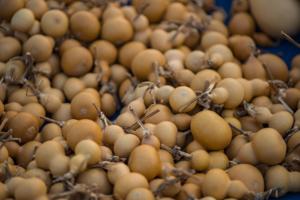Insights into Why Tomato Plants May Not Produce Tomatoes
Tomatoes are a popular fruit worldwide and are grown in different regions, thanks to their nutritional value and versatility in various dishes. Whether you grow them in your garden, greenhouse or a hydroponic system, it can be frustrating when your tomato plants fail to produce fruits. This article explains the possible reasons why tomato plants may not bear fruits and how to address the issue.
Factors Contributing to Tomato Plants Not Producing Fruits
1. Poor Pollination: Tomatoes are self-pollinating plants, which means they don't require pollinators to produce fruits. However, some conditions such as excessive heat, humidity, or lack of air circulation could hamper their pollination process. As a result, flowers may drop, and the plants may not produce fruits.
2. Nutrient Imbalances: Tomato plants require nutrients such as nitrogen, phosphorus, and potassium, among others, to thrive and produce fruits. Insufficient nutrients or an imbalance in the nutrient levels could prevent the plant from producing fruits.
3. Watering Issues: Overwatering or underwatering tomato plants can lead to poor yields or no yields at all. Too little water can dry out the plant, while too much water can cause root rot, which could kill the plant.
4. Pest Infestation: Pests like aphids, whiteflies, and spider mites could invade your tomato plants, leading to stunted growth and poor yields. Additionally, fungal or bacterial infections like blight or wilt could lead to the death of the plant, leaving no chance for it to produce fruits.
Solutions to Help Tomato Plants Produce More Fruits
1. Improve Pollination: Inadequate pollination can be remedied by gently shaking the tomato plant or flowers manually to spread the pollen. Additionally, planting marigolds or other pollinator-friendly flowers nearby can attract pollinators and improve the pollination process.
2. Nutrient Management: Feeding your tomato plants with a balanced fertilizer can provide the necessary nutrients for the plant to grow healthy and produce fruits. Use of organic manures like compost can also improve soil fertility and nutrient levels.
3. Adequate Watering: Watering tomato plants deeply but infrequently, ensuring the soil is moist but not saturated, can prevent overwatering or underwatering issues. Mulching around the plant can also help retain moisture, reducing the frequency of watering required.
4. Pest and Disease Control: You can manage pest infestations by regularly monitoring the plants for signs of infestation, then promptly treating them with suitable insecticides or fungicides. Additionally, practicing crop rotation and maintaining proper hygiene like removing dead plant parts can reduce the risk of fungal and bacterial infections.
Conclusion
Tomatoes are easy to grow, but they require care and attention to produce tasty and nutritious fruits. Poor pollination, nutrient imbalances, water-related issues, and pest and disease infestations are some of the common reasons why tomato plants may not produce fruits. Proper management practices such as improving pollination, nutrient fertilization, adequate watering, and disease control can help increase fruit yields and keep your tomato plants healthy.

 how many times do yo...
how many times do yo... how many planted tre...
how many planted tre... how many pine trees ...
how many pine trees ... how many pecan trees...
how many pecan trees... how many plants comp...
how many plants comp... how many plants can ...
how many plants can ... how many plants and ...
how many plants and ... how many pepper plan...
how many pepper plan...































